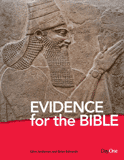 In this issue . . . In this issue . . .
Q: Are wisdom teeth useless? A: Wisdom teeth, properly known as third molars, generally appear between the ages of 15 and 27 in both the upper and lower jaws of humans. Many evolutionists consider them to be vestigial because, unlike apes, third molars often fail to develop properly in humans due to lack of space in the jaw. They argue that apes with their sloping face have longer jaws than man, and that when ape–like creatures evolved into humans with a vertical face and shorter jaws, there was no longer room for third molars.
But third molars are hardly useless vestiges. When there is adequate room for their development, they are fully functional molars and are used in chewing as much as the first and second molars. Thinking them to be vestigial, many dentists in the past routinely removed third molars whether or not they were causing problems.
Over the years, advancement in our understanding of biological science has raised serious doubts about vestigial organs as evidence for evolution. Creationists have subjected the evolutionary interpretation of vestigial organs to strong criticism.
Read the whole article to discover other parts evolutionists have deemed "useless" leftovers from our evolutionary past and how advancements in medical knowledge now begin to back up the biblical truth.
Get Equipped  Body of Evidence Body of Evidence
Dr. Menton is loved worldwide for his humorous and insightful talks that leave audiences in hushed awe at the Creator's wisdom. In this series, Dr. Menton employs anatomical props, models, and microscopic images to teach about God's amazing designs for life. Geared for teens and adults, Body of Evidence is great for anyone studying the human body, plus all who want to be able to show their skeptical friends some of the most amazing designs that point unmistakably to our Creator.
News to Know Quick Look Space Rock Supposedly Spurred "Life's Second Big Bang": A Swedish space rock is said to have triggered mass destruction and opened the way for "life's second big bang," but how did all those meteorites end up in just eleven feet of Flood-deposited sediment? Perhaps the catastrophic meteor shower was a part of a much larger catastrophe that had nothing to do with evolution. Once again, biblical history gives us the key to understand what is dug out of the earth. Did Bugs Give Ancestral Primates a Bigger Brain? Clever capuchin monkeys locate lots of insects and other invertebrates to eat when seasonal ripe fruit supplies run low. Evolutionary anthropologists believe these monkeys are showing us how the ingenuity of humanity's ancestors tapped into a nutritious fallback food source that enabled them to evolve bigger, better, more human brains. Capuchin monkeys are clever critters, but they do not explain what we humans need to know about our origins. Piecing Together Neanderthals at Sima de los Huesos: The "Pit of Bones" in northern Spain became the final resting place for at least 28 of Europe's earliest human inhabitants. Just as people all over the world today exhibit a great variety in their appearance, so groups of people isolated in the centuries after the Flood and the Babel dispersion would have developed characteristics that anthropologists now analyze in their fossils. After Eden  Photo of the Week 
To download this image for use as wallpaper on your device, right-click on the link below for the desired resolution and select "Save Link/Target As..."
This week Steve Ham talks with Dr. Andy McIntosh to answer the question, "How Do Birds Fly?"
|  This Week . . . This Week . . .
Video On Demand 
Did Bible Authors Believe in a Literal Genesis?
Watch Video Blog Highlights Pray for AiG Pray for our speakers as they travel to and from conferences all over the world. Resources  Connect with Us |

 This Week . . .
This Week . . . 

 Untold Secrets of Planet Earth: Dire Dragons
Untold Secrets of Planet Earth: Dire Dragons Evidence for the Bible
Evidence for the Bible Check This Out
Check This Out
 Body of Evidence
Body of Evidence 


No comments:
Post a Comment